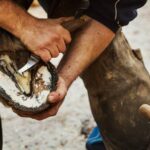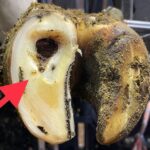
Karny Ilan’s Feminai harnesses AI technology to transform breast cancer diagnostics, making it more accurate, accessible and affordable, while empowering women to take charge of their own health
Karny Ilan always wanted to be a doctor.
“I think I came out of the womb wanting to be a doctor,” says the medical doctor and entrepreneur whose start-up was recently named global winner of the 2024 She Loves Tech Competition, which took place in Singapore in November.
From a young age, everything Ilan did was with that final goal in mind. At school she was making sure she achieved the required grades in relevant subjects. At 15 years old she was volunteering in medical institutions. And when she finally started medical school, she loved it.

Above From left: Feminai co-founders Gal Yanuka, Shani Klein and Karny Ilan (Photo: courtesy of Feminai)
Entrepreneurship, on the other hand, was a surprise to Ilan, who knew next to nothing about the topic when she decided, in her fifth year of medical school, to do something different and enrol in an entrepreneurship course aimed at women. It changed the way she looked at the world.
“I remember going back to my medical rotations at the hospital, and I was suddenly looking at things from a completely different point of view,” she says. “I kept asking myself questions, because that’s one of the things they taught in the entrepreneurship course—to always ask ‘why’. And the more I asked, ‘Why do we do that? Why is that like that? Who invented this?’ the more ideas started popping into my head, because the more you ask questions, the more problems you see, and the more problems you want to solve.”
The entrepreneurship course was offered to female students at various universities across Israel, where Ilan is from, with a national meeting on culmination. This was where Ilan met Shani Klein and Gal Yanuka, both of whom came from an engineering background and who would go on to become her co-founders. Back then, Ilan didn’t even know their last names, but they started sharing their thoughts in a WhatsApp group they named Ideas and Innovation.
“It was obvious to them that I would be pinpointing the problem,” says Ilan. “They wanted to do something medical and towards women’s health. I gave them a list of problems and then it just started becoming a real thing. It kept rolling and rolling until it became a real company.”
The particular problem that the three co-founders settled on solving had been identified one day by Ilan during her surgical rotation when she was taught how to do a clinical breast examination—a procedure in which doctors palpate a woman’s breasts. “It was so weird to me. It was 2021, and I was like why would my hands be able to find something? My hands are not bionic. This is not sci-fi. So it was weird that this was what physicians still do.”
And it was this that led to Feminai, a wearable at-home breast cancer screening device that uses AI to provide early detection for the most common cancer in women. It combines an innovative disposable self breast examination patch that is placed over the breast and used in conjunction with an app to help identify breast lesion abnormalities, non-intrusively and quickly. Its initial human clinical trials resulted in 96 per cent sensitivity and a 98 per cent negative predictive value.

Above Karny Ilan, displaying Feminai’s self breast examination patch, at the She Loves Tech Global Competition final in Singapore in November 2024, which she went on to win (Photo: courtesy of She Loves Tech)
Feminai has a particular resonance for Ilan whose family are carriers of a genetic mutation that puts them at risk for breast cancer. “So, I always knew I would be a client or I knew I would be at risk. I knew these are exams that I would have to do on a yearly basis from a young age,” she says. Likewise, her co-founders had their own personal medical history with breast cancer. “It automatically grabbed all of us.”
Breast cancer screening hasn’t changed much in the last century, combining the clinical breast examination that is carried out manually by a doctor and a mammogram, which can be a painful and, depending on your background and breast density level, inaccurate. Feminai’s device, on the other hand, offers a completely different experience and allows women to control their experience, carrying out the test from anywhere easily with convenience and affordability.
“It’s changing the whole experience of a woman and how she takes care of her health,” says Ilan. “It sends the message that you can control your health. You know how you’re doing. So, if you’re feeling something, you don’t need to convince anybody that you’re feeling something in your breast. You can test yourself.”
It hasn’t been plain sailing for Feminai’s founders since they established the startup in 2022. “We had no idea that it’s rare to have an all-female founding team,” says Ilan, who became acutely aware of the fact when it was repeatedly remarked upon and then when she started to receive critical comments from investors and consultants.
Ilan puts some of the comments and questions she receives down to naivety or as coming from a place of practicality, such as when she’s asked what’s going to happen to the company in five years if she wants to have kids. But, there have been other questions that come from a place of bias, particularly related to Feminai’s technology.
“The fact that the technology is built by a team that is 100 per cent women—that’s very weird for people. They’re on the verge of not believing it,” says Ilan. “They’re looking for the male that invented the concept. We’ve had a lot of questions like, ‘But, who built this?’. And when I point to my co-founders, it’s weird to them that an all-female group of engineers did this. That’s something where the world is a bit behind.”

Above Karny Ilan (second from left) with She Loves Tech co-founders, Leanne Robers, Virginia Tan and Rhea See (Photo: courtesy of She Loves Tech)
Personally, Ilan has struggled with imposter syndrome. “The more the company grows and the more complicated things get, the more scary it is to be leading this. It’s not just me as a CEO, it’s also my CTO (Klein) and my CPO (Yanuka). I think the best way to deal with it is we try to encourage each other. We really make each other keep going. And I do think it’s more of a female thing. I have a lot of male entrepreneur friends and they deal with it easily, and it crosses their mind at a much later stage, whereas for my female founder friends the imposter syndrome pops up super early—even when the company is small and nothing big is happening they’re already not feeling ready for the job they’re doing. I think for me what helped me is understanding that nobody knows what they’re doing. It’s not like someone else would come and sit in my chair and know exactly what to do. And that’s what I keep reminding myself—you’re figuring it out just like they would.”
One of the things that Ilan is most proud of at a company level is the number of messages they get from people wanting to join their team, including from senior and established professionals. “It’s showing that we are doing something that people want to be part of,” she says.
To other women entrepreneurs, Ilan says, “Don’t think, just do. Be yourself, don’t be apologetic, be brave and dare to make your vision a reality. We really can do anything, it’s just a matter of putting all of our passion behind our choices.”
Clinical trials for Feminai’s device are currently underway in the US, with plans for it to be available in 2026. While that is the immediate next goal, Ilan says, “Our focus at the beginning was really using our technology for this specific disease, but we’re definitely open and excited about the possibility of becoming a multi-device and multi-disease company that is able to do all sorts of things with the technology we invented.” Transforming breast cancer diagnostics, it seems, is just the beginning.









